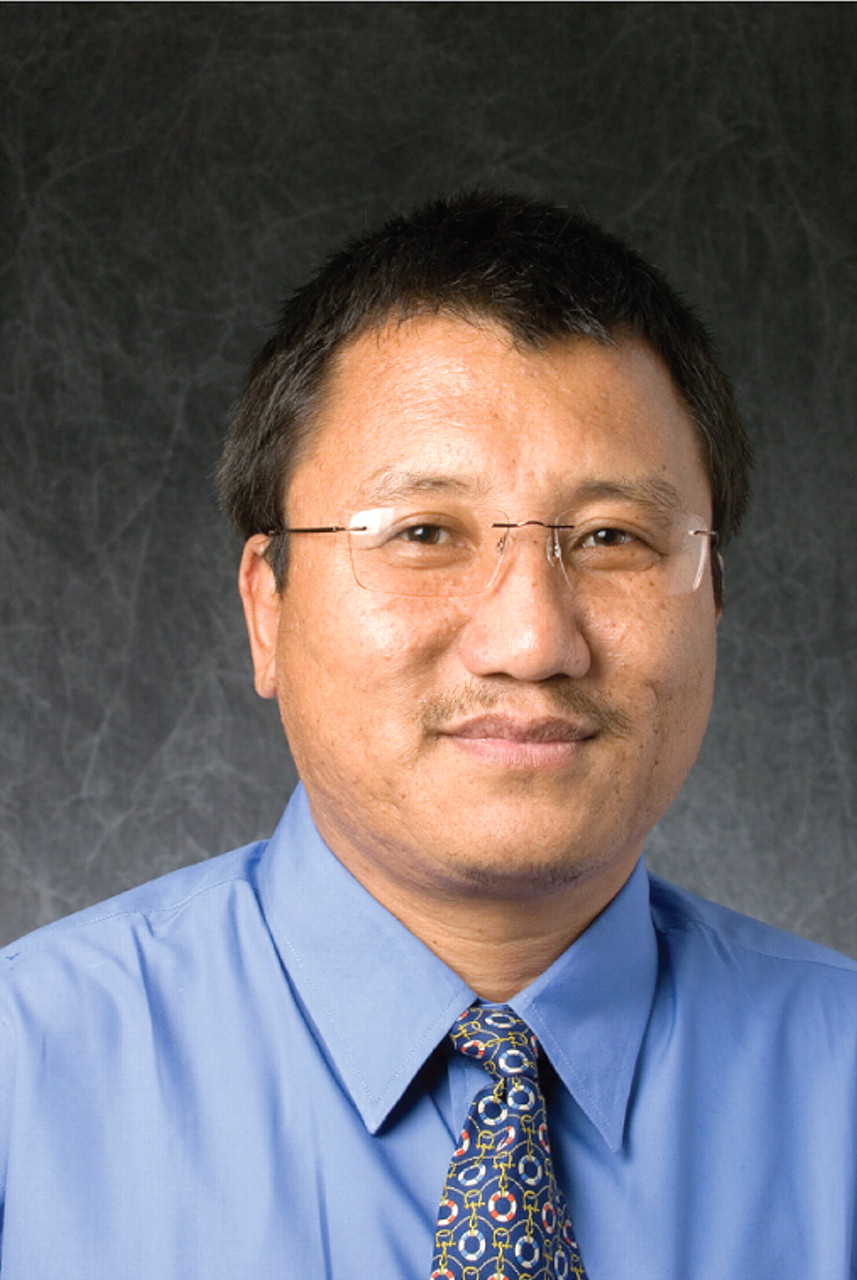Chencho Dorji, M.D., is the first psychiatrist in Bhutan. Ever.
This is an age when it's no longer easy to be the first anything. Pretty much everything has been done at least once by someone, somewhere.
Not so in Bhutan.
Of course, you may ask, why does Bhutan need a psychiatrist in the first place? Isn't that the tiny country locked away in the eastern Himalayas, the model for the fictional “Shangri-La,” a little paradise untouched by earthly cares? The real-life nation whose official guiding principle today is the pursuit of “Gross National Happiness?”
Maybe so, but the real Bhutan, with all its mountainous charms, is populated by 634,982 human beings who, like human beings everywhere else, sometimes display symptoms of schizophrenia, bipolar disorder, depression, or drug abuse.
Bhutan spent centuries in isolation. Roads first connected the country to the outside world only in the 1960s, and access by air came even later. Until recently, psychiatric treatment and other forms of tertiary care were outsourced to India, Bhutan's neighbor to the south.
Dorji got his medical degree in Poona, India, in 1985, then interned in Calcutta, and returned to Bhutan to serve as a general practitioner until 1995, when he was asked by health authorities to train in psychiatry. He entered a residency program in Sri Lanka, and then spent 1998 and 1999 in Australia observing how a community mental health system worked in cooperation with a specialist hospital, he said in a recent interview.
As the only psychiatrist in Bhutan—another is training now in India—Dorji is responsible for every aspect of mental health service delivery for the full spectrum of psychiatric disorders. He was initially advised by a World Health Organization consultant to build a large psychiatric hospital, but Dorji chose a different path.
Bhutan has a well-developed primary care network, and Dorji wanted to integrate mental health into it by teaching primary care clinicians about psychiatric diagnoses, medications, and counseling so they can identify and provide appropriate treatment for people with mental illness. He stretched a $25,000 grant from a Danish nonprofit organization over three years to train both primary care providers and specialists (including obstetricians/gynecologists, pediatricians, nurses, and midwives) in basic psychiatric concepts.
Bhutan's traditional medical practices draw on practices developed in neighboring India, China, and Tibet. For cultural and practical reasons, Dorji wanted to bring local and Western medical traditions together, so that each could benefit from the strengths of the other.
As in many non-Western cultures, anxiety and depression often present as somatic symptoms, said Dorji. Simply treating the somatic symptoms can be a waste of time and money for both doctors and patients. In some cases, patients might recover faster if they saw a traditional healer before or along with a skilled therapist.
He began with a pilot survey of mental health needs in three of the country's 20 provinces. In each province, he first called in all local health care personnel, not only doctors and nurses, but also the shamans, village health workers, and local leaders. He stimulated a discussion on just what mental health and mental illness meant to them.
“We got many answers: psychosis, depression, alcohol dependence, epilepsy, mental retardation, suicide,” said Dorji. “These were all easy to identify and easy to target.”
On the second day, he explained all the ICD-10 criteria for each psychiatric diagnosis. This part of the discussion revealed both a lack of knowledge and a lot of stigma. Dorji randomly selected eight houses in a local village and sent his local practitioners out to screen the households and identify mental health cases using the Composite International Diagnostic Interview.
Then the modern health care workers, the traditional healers, the monks, and others discussed these identified cases and suggested treatments. Each group educated the others about its own point of view.
“This is the best way to reach out to traditional medicine,” he said.
In 2007-2008, Dorji was based at the Johns Hopkins Bloomberg School of Public Health in Baltimore as a Hubert H. Humphrey Fellow. The Humphrey fellowship provides 10 months of nondegree academic study and related professional experiences at 15 universities in the United States. The Hopkins program focuses on public health and drug abuse.
Among other topics, Dorji studied cognitive-behavioral and family-systems models for treating and preventing drug dependency and HIV infection, along with methadone and buprenorphine treatment of heroin addiction.
He spent several months looking at community-based therapeutic models like Daytop and medically supervised models like Phoenix House.
“These are the kind of programs that can be transported with translation,” said Wallace Mandell, Ph.D., M.P.H., a professor emeritus of mental health at the Johns Hopkins Bloomberg School of Public Health and director of the school's Humphrey fellowship program. “They have a lot of advantages for a mountainous, rural country where people will have to live at a residential center and get treated.”
On his return to Bhutan, Dorji hopes to begin development of Bhutan's first drug treatment center. That may sound like an anomaly in Shangri-La, but it reflects the inevitable influence of the outside world. Most of the drug problems in the kingdom occur among young people who abuse prescription drugs. Easy access to cheap medications from unregulated Indian pharmacies has led to over-doses and deaths among young people, he said. In response, the government passed a drug control act that included, at Dorji's insistence, a voluntary drug treatment program as an alternative to jail.
“So now we need a drug treatment center,” he said.
While in the United States, he attended a fundraising event in New York for a proposed day-care program for young patients with schizophrenia and bipolar disorder. At present, only families of the ill in Bhutan care for them. But eventually, the families find themselves burdened by problems and run out of options. The patients often end up on the streets or in jail.
However, if there were settings where patients could be stabilized and treated for several months, they might be able to return home for longer-term care. Dorji envisions establishment of a halfway house for chronically mentally ill individuals whose families have abandoned them. ▪

